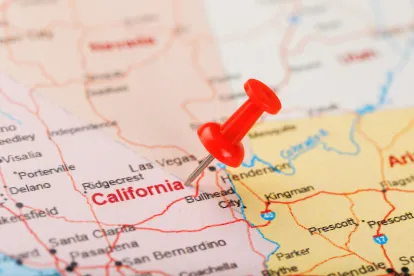The advocacy group, Californians for Consumer Privacy, is going to court in an effort to ensure that California residents have the ability to vote on the proposed California Privacy Rights Act (“CPRA”) in a referendum in November.
Shortly following the flurry of activity caused by the California Attorney General submitting his final proposed regulations and accompanying materials on June 1, 2020, Californians for Consumer Privacy filed a petition for a writ of mandate in Sacramento Superior Court on June 8, 2020 regarding the CPRA. According to the Petition, the California Secretary of State violated the California Elections Code section 9030(c) by delaying instructions to counties to begin the process to validate the referendum signatures by a random sampling. The delay is important because the timing is very tight and the measure must be certified by the Secretary of State no later than June 25, 2020 in order for it to be on the ballot in November.
What happened?
On May 1, 2020, Californians for Consumer Privacy – the organization behind the ballot initiative that gave rise to the California Consumer Privacy Act of 2018 (CCPA) – started the submission process of over 900,000 signatures collected in support of the CPRA to the California counties in which they were collected for initial count and validation (the minimum number of valid signatures to qualify for the November 2020 election is 623,212). This triggered the complex process for qualification, which began with a count of signatures by the different counties. The counties progressively reported their counts to the Secretary of State. According to the petition, Riverside County didn’t report the signatures to the Secretary of State’s office until 5:27 p.m. on May 13 — 27 minutes after the close of business. The petition indicates that the 56,346 signatures from Riverside pushed the total signature count over the threshold required to trigger validation, reaching 667,062 total at that point in time.
The Secretary of State ordered counties to start the signature validation process on May 14th, nearly 24 hours after receiving Riverside County’s report. Per the petition, the Secretary of State has alleged that they received the notification after the close of their office for the day and therefore notified the counties the following day. However, petitioners note that multiple notifications for validation by random sampling have gone out to counties from the Secretary of State after the 5:00pm closing time, in both this and the 2018 election cycles.
By law, counties have 30 working days after being notified by the Secretary of State to complete the validation process (which is the final step of the process to get the measure on the ballot.) This gives counties a deadline of June 26th to complete the validation, which is one day later than June 25th, the deadline by which the CPRA must qualify for the ballot.
Why does it matter?
The California process to qualify initiatives proposed by individual registered voters for the ballot process is subject to strict requirements and deadlines. These requirements include a detailed timeline for initial count and validation of signatures. As a result, if the counties do not report on their random sample validation results to the Secretary of State until June 26, 2020, the CPRA may not appear on the November 2020 ballot, regardless of whether there are enough validated signatures or not.
De facto, counties may report the results of the validation process to the Secretary of State before June 26th or even prior to the June 25th deadline to qualify the ballot. However, the one-day-delay by the Secretary of State opens the possibility that one or several counties may not report until June 26th, which could derail CPRA.
What are the petitioners asking the of Court?
Californians for Consumer Privacy are requesting a writ of mandate that will require counties to report to the Secretary of State no later than 5:00pm on June 25, 2020, the deadline for qualifying for the ballot.
The petitioners argue that Californians’ First and Fourteenth Amendment rights are at stake if the process delays are allowed to prevent them from voting on the CPRA in November.
What will happen next?
This is an evolving situation and we will provide updates as new information becomes available.





 />i
/>i

